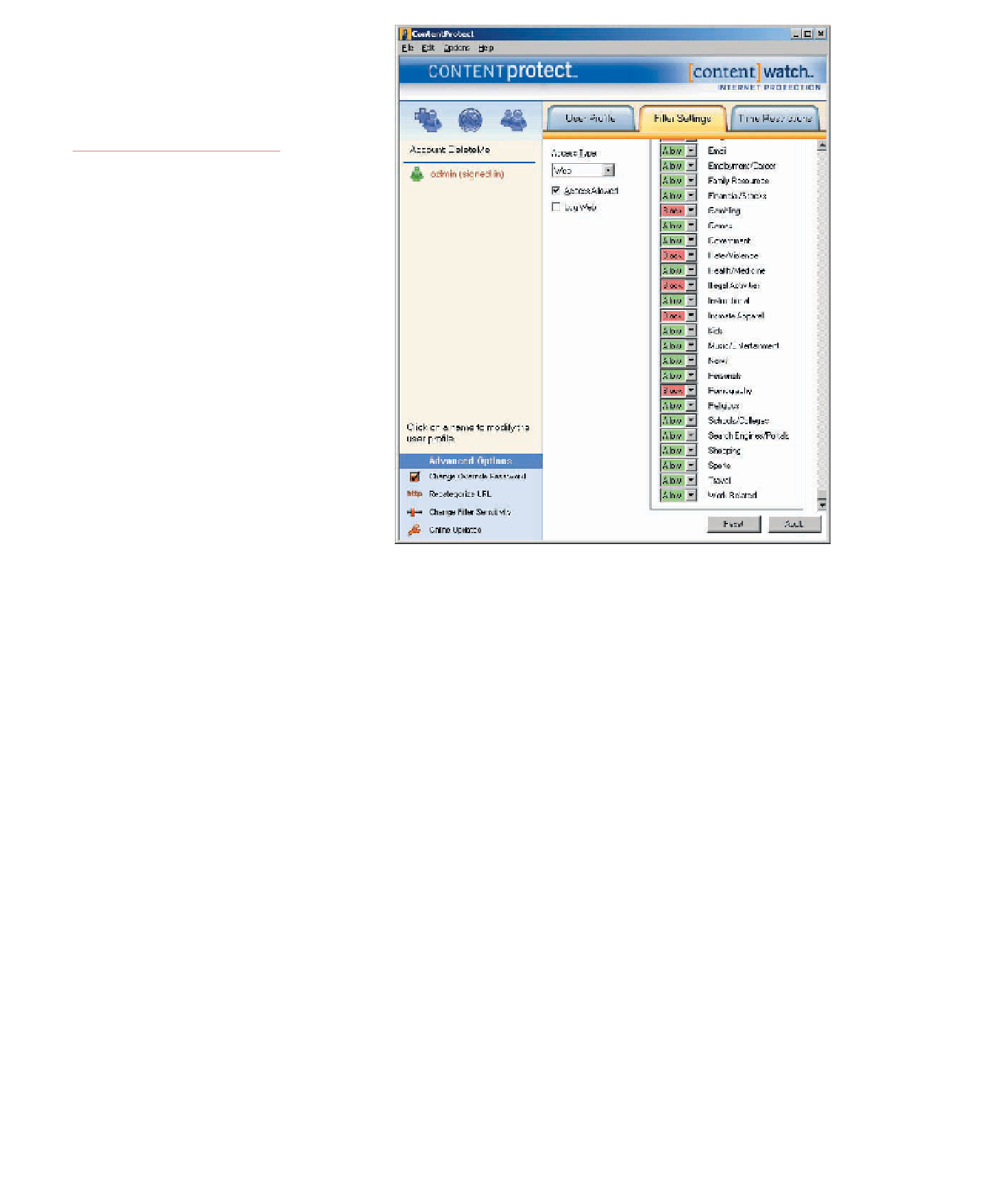Information Technology Reference
In-Depth Information
ContentProtect is a filtering
software program that helps block
unwanted Internet content from
children and young adults.
(Source: Courtesy of ContentWatch
Inc.)
Internet Libel Concerns
With the increased popularity of networks and the Internet, libel becomes an important legal
issue. A publisher, such as a newspaper, can be sued for libel, which involves publishing an
intentionally false written statement that is damaging to a person's reputation. Generally, a
bookstore cannot be held liable for statements made in newspapers or other publications it
sells. Online services, such as CompuServe and America Online, might exercise some control
over who puts information on their service but might not have direct control over the content
of what is published by others on their service. So, can online services be sued for libel for
content that someone else publishes on their service? Do online services more closely resemble
a newspaper or a bookstore? This legal issue has not been completely resolved, but some court
cases have been decided. The
Cubby, Inc. v. CompuServe
case ruled that CompuServe was
similar to a bookstore and not liable for content put on its service by others. In this case, the
judge stated, “While CompuServe can decline to carry a given publication altogether, in
reality, after it does decide to carry a given publication, it will have little or no editorial control
over that publication's content.” This case set a legal precedent that has been applied in
similar, subsequent cases. Companies should be aware that publishing Internet content to
the world can subject them to different countries' laws in the same way that exporting physical
products does.
Geolocation tools match the user's IP address with outside information to determine the
actual geographic location of the online user where the customer's computer signal enters
the Internet. This enables someone to identify the user's actual location within approximately
50 miles. Internet publishers can now limit the reach of their published speech to avoid
potential legal risks. Use of such technology is also dividing the global Internet into separate
content regions, with readers in Brazil, Japan, and the United States all receiving variations
of the same information from the same publisher.
Individuals, too, must be careful what they post on the Internet to avoid libel charges.
In many cases, disgruntled former employees are being sued by their former employers for
material posted on the Internet.

